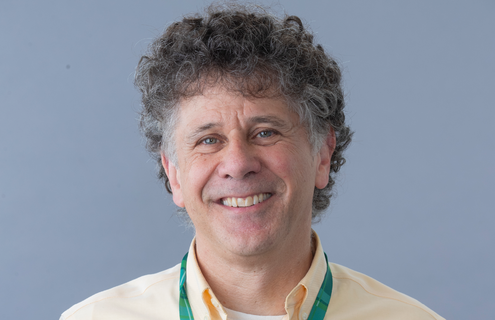
Have you spent the night tossing and turning, unable to get back to sleep? You may be suffering from insomnia, a sleep disorder where people have trouble falling asleep or staying asleep. Adam J. Sorscher, MD, Medical Director of the Sleep Health Center at Alice Peck Day Memorial Hospital, explains insomnia.
How prevalent is insomnia?
In the United States, it is estimated that about one third of adults will experience a troubling episode of insomnia in their life. This is usually due to some sort of stressful situation and the insomnia will resolve on its own over a few weeks. But, more significantly, about 10 to 15% of adults struggle with chronic insomnia for years.
Are certain types of people more likely to be affected?
There are many potential underlying causes of insomnia: chronic pain, mental health struggles, and taking medications that challenge good sleep, to name a few. Also, people who experience chronic insomnia often have a brain type that exhibits hyperarousal. In other words, they inherited a brain chemistry rich in alerting neurotransmitters but weak in the neurotransmitters promoting sleep.
Are seniors more likely to suffer from insomnia?
Because seniors are likely to have other medical or mental health diagnoses and take multiple medications, they may exhibit higher rates of insomnia. But insomnia is not inevitable as people get older. People who age without medical or mental health conditions often continue to exhibit good sleep.
Does insomnia take a toll on other health conditions?
Sleep is crucial for general health and well-being. In subtle ways, all physical and mental health conditions are worsened by chronic insomnia. When people do not get enough sleep because of insomnia, it creates a state of chronic stress with elevated levels of cortisol. Chronic insomnia has been shown to contribute to depression, anxiety, and cardiovascular issues.
What are the most up-to-date treatments for insomnia?
Experts in insomnia generally regard cognitive and behavioral therapy for insomnia as the treatment of choice. This usually involves working with a psychologist over a few months to practice behavioral techniques and mind calming techniques shown to optimize sleep. This can serve a person for their lifetime if and when insomnia flares up.
Sleeping pills are also an option and there are some new, promising sleeping pills on the market that work by dampening arousal chemistry in the middle of the night –– this is different than traditional sleeping pills that work by stimulating sleep-promoting neurotransmitters.
How can the experts at APD’s Sleep Health Center help?
A sleep study is not necessary in most cases of insomnia. (However if there is a concern about sleep apnea, problematic sleepiness in the daytime, or unusual body movements arising from sleep, a sleep study can figure out the cause and treatment.) Instead, our sleep medicine providers will work with you to explore the contributing factors of chronic insomnia and recommend effective treatments to help you get a good night’s sleep.